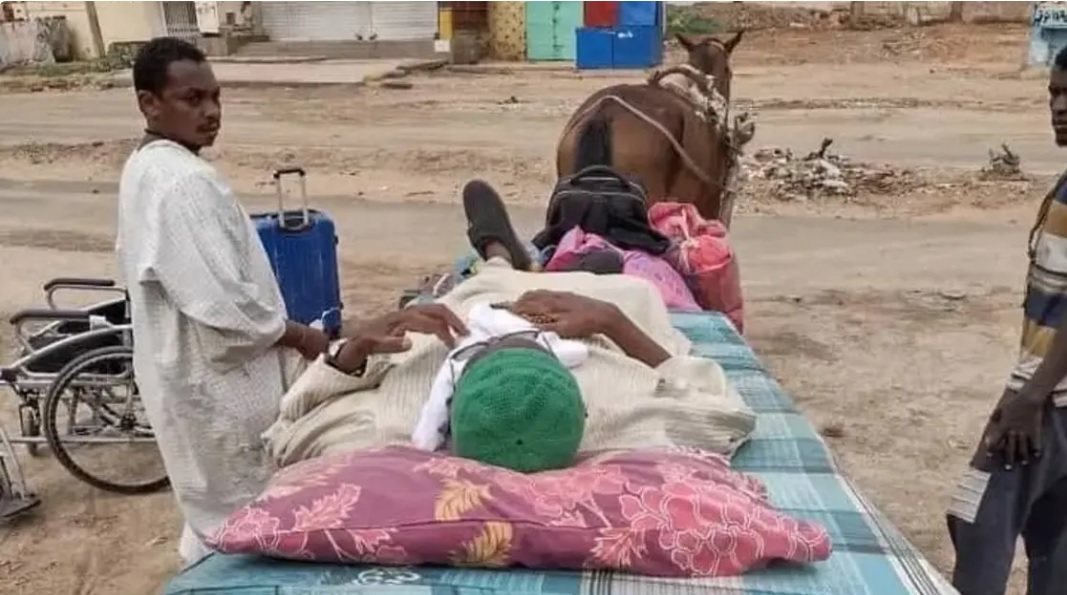
Caro of War, the Last Epic of the Epicist
Khartoum - Al-Zain Osman
Riding on a horse-drawn cart, the Sudanese revolutionary poet Hashem Sadeq left his home in the area of Bant in Omdurman for another place, fleeing death and war in search of safety.
The writer of the epic, a musical operetta that embodies the triumph of the peoples uprising against the first military rule in the country in the 1960s, had to embark on another epic for life. He was the same poet who once wrote Hajah Feik, a song that felt like fingers snapping to the music, long before those fingers were pressed on the trigger, transforming life in Omdurman into a different reality, a reality the poet and playwright, the host of the Cinema 90 program on Sudanese television, was not accustomed to, with its music composed by Sudanese artists, and its beauty celebrated by the artist Abu Araki Al-Bakheet (Id Laugh).
Residents of Bant, where Sadeq lived, say that since the outbreak of the war in mid-April, walls of obstacles have risen between them and life. The streets are no longer filled with laughter, and even the light no longer reaches the rooms made of mud and drinkable water. The poets body can no longer function without medication and established hospital doors. Only his love for the place, emotional attachment, and memories make him unable to leave his beloved Omdurman, as described in the songs.
To see the epicist evacuated in a horse-drawn cart is a heartbreaking sight, reopening discussions about the catastrophic consequences of war. But for those who helped evacuate him, the choice of a cart was the only available option after the adjacent area to the Engineers Regiment turned into a battlefield between the army and the Rapid Support Forces. It became impossible to find a car that could contribute to the evacuation. After a long wait, the poet left in this cart, thanks to the efforts of those around him, allowing him to continue his treatment journey and receive the necessary medication.
In an audio message, Sadeq reassured his admirers about his health, stating that he was in a better place than before. He didnt forget to share some of his dreams, which revolved around leaving the country to reprint his poetry collections and write a new play for his friend Nabta, a story that might be about war and the dreams of peace.
Sadeq left his home, transforming it into Caro of War, a simple man, as described in a text by a journalist, poet, writer, and critic. He received written notes from the unique Paradise Restaurant, consisting of ful (fava beans) and hilla (a local drink) for the thirsty in scarcity. He left, leaving behind the question of whether, in times of war, he can distance himself from worries through writing, support the poor and destitute, and bury his concerns in music in a land where only the sound of cannon fire and bombs is heard. In the voice, there is nothing but the cry of Khartoum, expelling the grief that dwells within me from the trials and tribulations. Cleanse me of doubts, sorrows, and sins. Blend kindness with contentment, enrich the journey with friendship, and save me.

